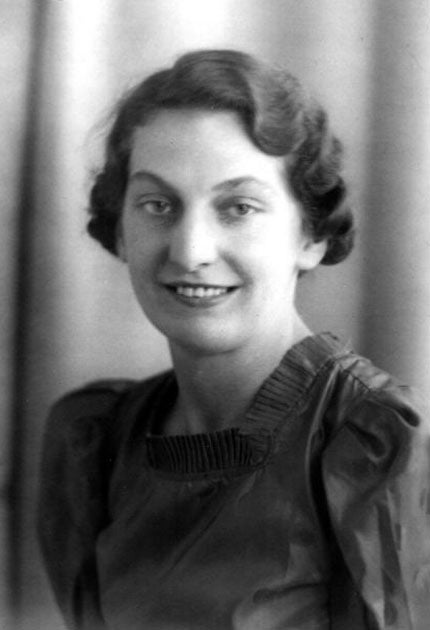Doris Gardiner: Teacher who survived the wartime Freckleton Air Disaster

Your support helps us to tell the story
From reproductive rights to climate change to Big Tech, The Independent is on the ground when the story is developing. Whether it's investigating the financials of Elon Musk's pro-Trump PAC or producing our latest documentary, 'The A Word', which shines a light on the American women fighting for reproductive rights, we know how important it is to parse out the facts from the messaging.
At such a critical moment in US history, we need reporters on the ground. Your donation allows us to keep sending journalists to speak to both sides of the story.
The Independent is trusted by Americans across the entire political spectrum. And unlike many other quality news outlets, we choose not to lock Americans out of our reporting and analysis with paywalls. We believe quality journalism should be available to everyone, paid for by those who can afford it.
Your support makes all the difference.Doris Gardiner was one of the last survivors of a long-forgotten Second World War tragedy that, in its scale, sadly rivals both Aberfan and Lockerbie. But for her mother's illness on that fateful day, she would almost certainly have been yet another of the many names so poignantly recorded on the village war memorial.
Wednesday 23 August 1944 began like any other day in the sleepy Lancashire village of Freckleton. Situated on the banks of the River Ribble, once the traditional haunt of smugglers, during the Second World War it played host to a large contingent of American airmen, based mostly at the neighbouring Warton aerodrome.
At its heart lay Holy Trinity primary school where 176 children, many of them evacuees, were in their second day of a new term. In charge of the infant class and looking forward to her impending retirement was Louisa Hulme. Replacing Doris Catlow, who was absent that day nursing her sick mother, was a 21-year-old local girl, Jennie Hall.
At 10.30am, an American Liberator Bomber 42-50291 took off from Warton on a routine test flight. Eleven minutes in, a huge explosion, thought to have been sparked by a bolt of lightning, tore the huge plane apart. Large parts of the fuselage rained down on the village, hitting the school and a neighbouring snack bar. In the ensuing inferno, 61 people were killed, including 38 members of that infant class; it was the greatest loss of civilian life outside London during the Second World War.
Initially many, including her own fiancée, then serving with the RAF in Burma, believed that Doris had perished. Only later did the story of her escape gradually emerge. She led the procession of mourners as all the victims were quickly buried in a mass grave close to the ruins of the school. A fortnight later came another funeral, this time of Louisa Hulme, who had subsequently died in hospital. As was her wish, she was laid to rest alongside her pupils.
The daughter of a Lancashire builder, Doris Catlow was educated at Blakey Lodge school, Blackburn, before, in 1937, training as a teacher at St Katherine's College, Liverpool. She qualified in 1939, her first appointment taking her to Freckleton. Like many, she was deeply traumatised by the disaster, and she subsequently moved closer to her family home, taking a position at Intack school. But no matter where her career took her she never forgot the children who perished, nor the young teacher who died covering for her.
Following her marriage in 1946 to David Gardiner, she and her husband moved to Scotland, where she enjoyed a long and successful teaching career. Initially working at Bankhead school in Glasgow, she later moved into the independent sector, first to Brooklea school and later to Carnwadric and Arden schools. For six years, from 1970 until 1976, together with her husband, she ran Park Lodge, a combined nursery and preparatory school close to Loch Lomond in Dumbartonshire.
It took three decades before she felt able, in some small way, to come to terms with the events of the past and return to Lancashire. Settling back on the Fylde coast, there, as a prominent member of the distinctive White Church in Fairhaven, she proved a tireless worker for charitable causes.
Doris Catlow, schoolteacher: born Ribchester, Lancashire 6 June 1919; married 1946 David Gardiner (died 2008; one son and one son deceased, and one daughter); died Lytham St Annes, Lancashire 30 June 2010.
Join our commenting forum
Join thought-provoking conversations, follow other Independent readers and see their replies
Comments